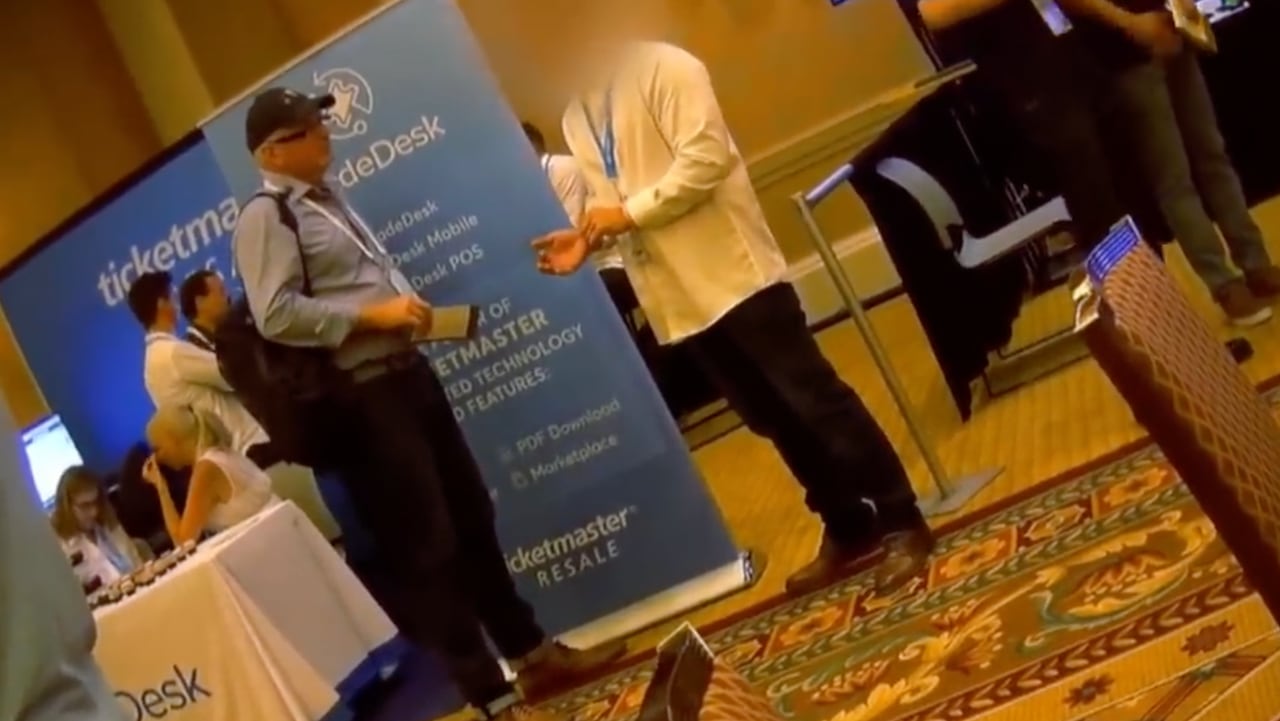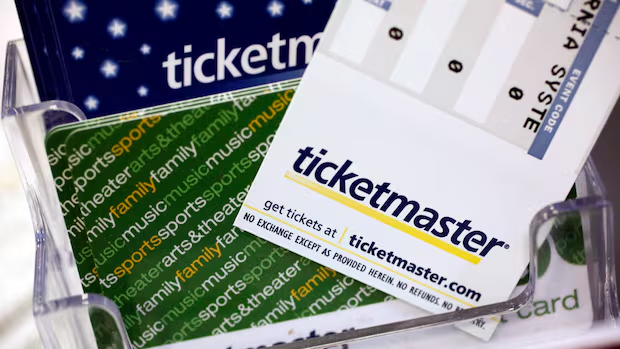Ticketmaster, the world’s largest online box office, is promising for the first time to crack down on industrial-scale scalpers to bar them from using hundreds — sometimes thousands — of fake Ticketmaster accounts to buy up and resell tickets for concerts, theatre and sporting events.
The move, announced in a letter to U.S. lawmakers late last week, comes after the U.S. Federal Trade Commission filed a lawsuit in September. The multimillion-dollar suit accuses Ticketmaster and its parent company, LiveNation, of “illegal ticket resale tactics” and “deceiving artists and consumers about price and ticket limits.”
The letter’s details were first published by Billboard, the American music and entertainment magazine.
For years, fans trying to log on to the Ticketmaster website to buy their allotted maximum of four or six tickets to see their favourite artists have cursed at the inability to buy face-value seats directly from the box office, watching as scalpers and resellers scoop up most tickets for popular events, only to post them on resale websites at huge markups.
The FTC acknowledges its suit is based in large part on revelations from a 2018 CBC News/Toronto Star investigation, in which reporters went undercover posing as “ticket brokers” and exposed how Ticketmaster recruited mass scalpers and knowingly let them use hundreds of fake accounts to circumvent ticket-buying limits.
WATCH | The National: Inside Ticketmaster’s secret scalper program (2018):
Ticketmaster calls the FTC lawsuit “a distorted view of the facts and the law” and plans to challenge the claims in court, yet acknowledges that “ticket brokers” using fake names, bogus IP addresses and bots to maintain large numbers of fake ticket-buying accounts has become industry standard.
”That ticket brokers have been allowed to maintain multiple accounts is true; calling that conspiracy is specious,” wrote Daniel M. Wall, executive vice-president of corporate and regulatory affairs at Live Nation in an Oct. 17 letter to U.S. senators Marsha Blackburn and Ben Ray Luján, who have been leading a bipartisan campaign for fairer ticket sales in the U.S.
The FTC lawsuit unearthed internal Ticketmaster documents showing, for example, that in 2018, five brokers controlled 6,345 Ticketmaster accounts and possessed 246,407 concert tickets to 2,594 events.
“To be sure, it has gotten out of hand, especially since scalpers developed automated tools for creating Ticketmaster accounts,” Live Nation wrote to the U.S. lawmakers. “Given the level of abuse we are now seeing, we are no longer permitting this. It’s unfair to artists and fans and it is time to do something about it.”

As of Oct. 17, Ticketmaster vows to limit everyone — brokers included — to one Ticketmaster account, and to use advanced AI security screening to detect cheats.
“Excess accounts will be canceled in due course,” the company said.
In the letter to U.S. lawmakers, Ticketmaster also announced it is shutting down part of its TradeDesk platform, a ticket resellers’ inventory management software, and will no longer allow the mass-reselling of concert tickets (although the company indicates mass-reselling of sports and theatre tickets could still be allowed).
“We have come to the conclusion that the reputational harm to Ticketmaster from having to explain and defend TradeDesk exceeds its value. While we believe this criticism is unfair, we are removing TradeDesk’s concerts ticket management functionality from the market,” the Live Nation executive wrote.
Undercover reporters documented collusion
While news of Ticketmaster’s promised crackdown may be music to the ears of the Federal Trade Commission and U.S. politicians, the 2018 CBC/Toronto Star exposé revealed the extent to which the company has historically collaborated with and profited from scalpers.
Reporters went undercover with hidden cameras, posing as small-time ticket brokers to ask Ticketmaster officials for help on how to set up a lucrative reselling business.
At a tradeshow kiosk set up at an international ticket brokers’ conference in Las Vegas, a Ticketmaster salesman was openly recruiting mass scalpers, promoting TradeDesk and offering to help them manage and resell huge inventories of fan tickets — knowing full well the scalpers were using fake accounts to acquire tickets.

At one point, the undercover CBC reporter said, “I want to know the straight goods on whether Ticketmaster is going to be policing us on our multiple accounts.”
“No,” the Ticketmaster rep said. “I have a gentleman who’s got over 200 Ticketmaster.com accounts.” The rep then noted that the company had “an auto-sync feature.”
“If you’ve got 100 Ticketmaster.com accounts, you’re out there buying, buying inventory, the system is automatically going to sync them and move them over to create the [resale] listing.”
“How many brokers are using multiple accounts?” CBC asked.
“I’d say pretty damn-near every one of them,” the rep said. “I can’t think of any of my clients that aren’t using multiple accounts.”
CBC News posed as a ticket broker a second time off-site and arranged an online product demo from a TradeDesk representative who confirmed Ticketmaster would turn a blind eye to the use of multiple fake accounts.
The CBC reporter asked, “If I’m using multiple Ticketmaster accounts to acquire my tickets, is TradeDesk going to stop me from trying to sell them?”
“Nope,” said the TradeDesk rep. “The last thing we’d want to do — we’ve spent millions of dollars on this tool — so the last thing we’d want to do is, you know, get brokers caught up to where they can’t sell inventory with us.”
“So you’re not trying to track the people who are, you know, using multiple identities to acquire the tickets?” CBC asked.
“No, not at all,” said the TradeDesk salesman.
After CBC’s initial stories in 2018, Ticketmaster said it considered cracking down on scalpers using fake accounts to cheat the ticket-buying limits.
But in their Oct. 17 letter to U.S. senators, Live Nation/Ticketmaster says the company feared that, back then, a crackdown “would simply cause brokers to avoid Ticketmaster and post on other resale marketplaces.”
But now, in the face of a multimillion-dollar lawsuit from the U.S. government and a potential court injunction that could force the company to shut down more of its reseller operations, Ticketmaster is promising change.
Source link






